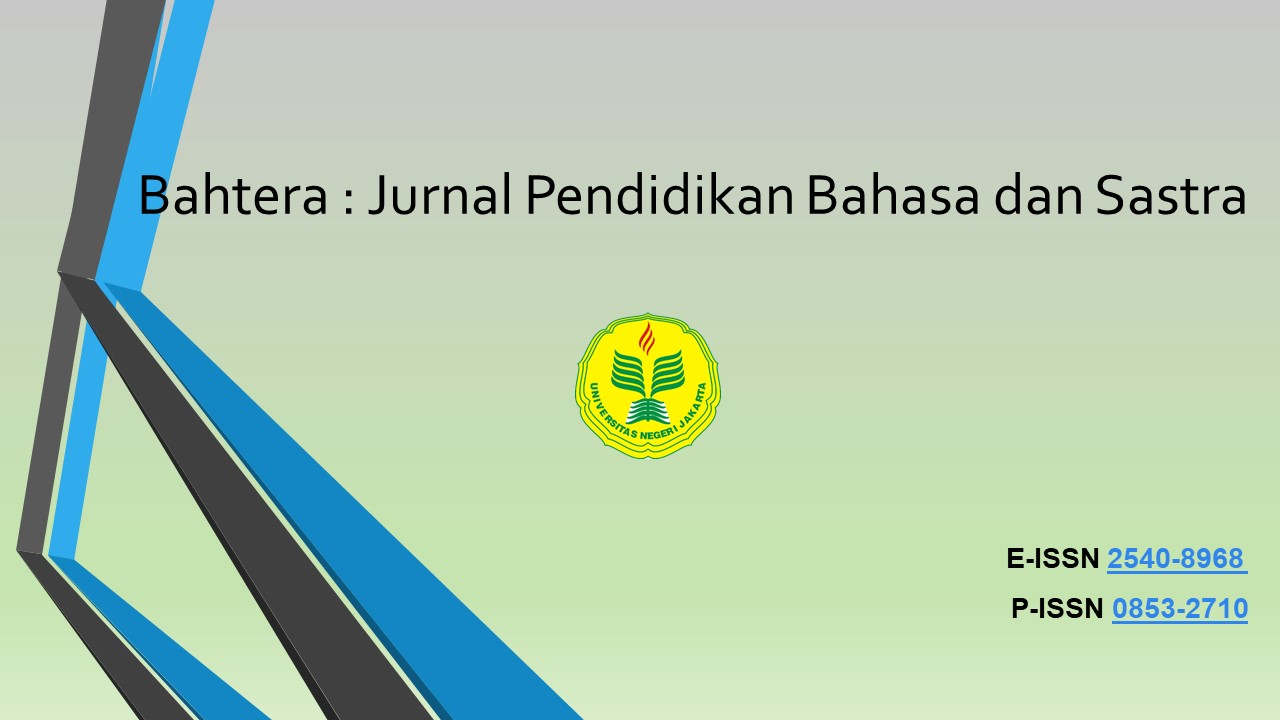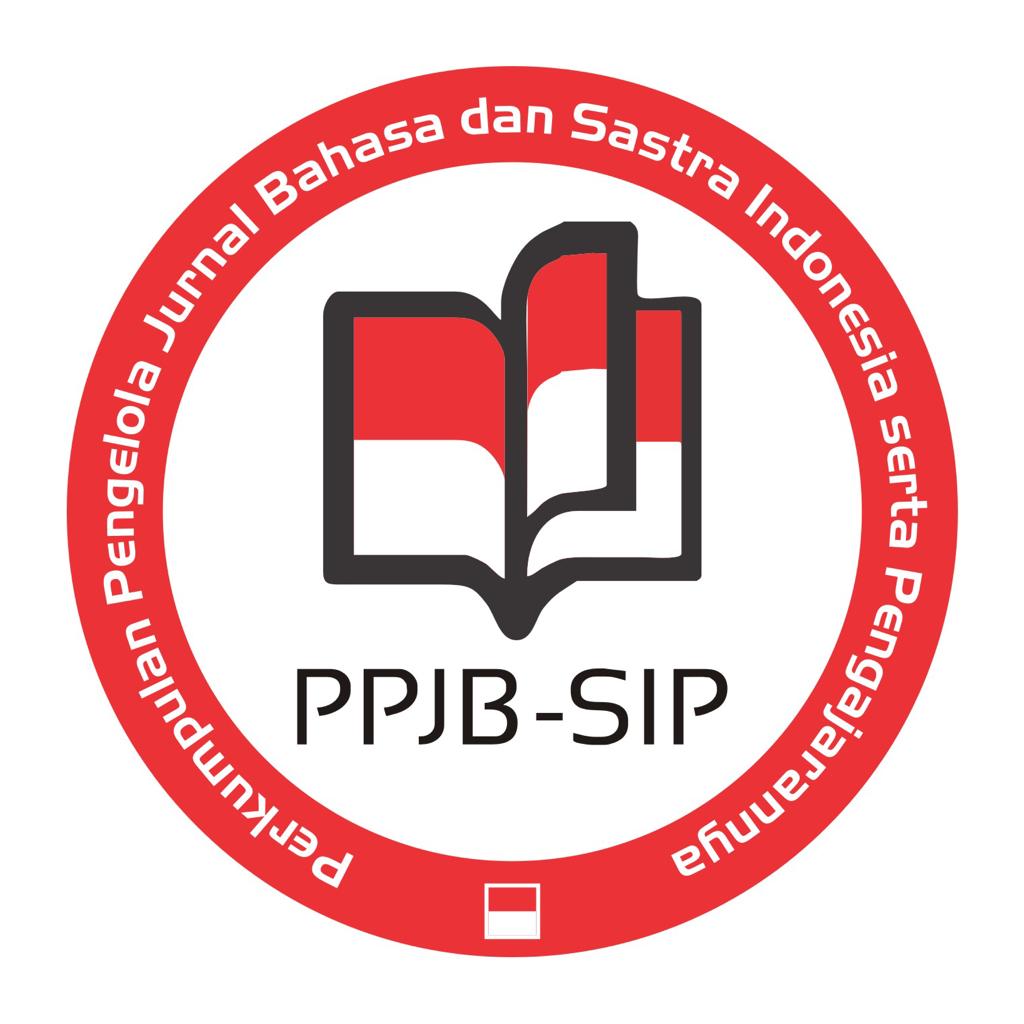TINDAK TUTUR ILOKUSI DALAM UPACARA ADAT PERKAWINAN MASYARAKAT MUNA SULAWESI TENGGARA (Studi Penelitian Etnografi Komunikasi)
DOI:
https://doi.org/10.21009/BAHTERA.161.003Keywords:
ethnography communication, illocutionary, speech actsAbstract
Abstrak
Penelitian ini bertujuan untuk memperoleh pemahaman yang mendalam tentang tindak tutur ilokusi dalam upacara adat perkawinan masyarakat Muna di Desa Wali, Kecamatan Watopute, Kabupaten Muna, Sulawesi Tenggara. Pendekatan yang digunakan dalam penelitian ini adalah pendekatan kualitatif dengan metode etnografi komunikasi berdasarkan teori Hymes. Data penelitian ini adalah tuturan dalam bahasa Muna yang terjadi dalam prosesi upacara adat perkawinan masyarakat Muna yang mencakup data tindak tutur ilokusi representatif, direktif, komisif, ekspresif, dan deklaratif. Hasil dalam penelitian ini menunjukkan bahwa dalam upacara adat perkawinan masyarakat Muna ditemukan data tindak tutur ilokusi representatif berupa tindak tutur ilokusi representatif menyatakan, melaporkan, dan mengklaim. Data tindak tutur ilokusi direktif berupa tindak tutur ilokusi direktif perintah, memohon/meminta, berdoa, dan bertanya. Data tindak tutur ilokusi komisif berupa tindak tutur ilokusi komisif berjanji. Data tindak tutur ilokusi ekspresif berupa tindak tutur ilokusi ekspresif meminta maaf, memberi salam, dan menyampaikan rasa hormat. Data tindak tutur ilokusi deklaratif berupa tindak tutur ilokusi deklaratif penamaan dan menikahkan.
Kata kunci: tindak tutur, ilokusi, etnografi komunikasi
Abstract
The purpose of this research is to discover the deep comprehension about illocutionary speech act in the traditional wedding ceremony in Wali village, Watopute subdistrict, Muna regency, Southeast Sulawesi. The approach of the research is qualitative with ethnography communication methods based on Hymes theory. The data of the research are the speech is Muna language happened in the wedding ceremony. All the data taken included representatives illocutionary speech act, directives, commissives, expressives, and declaratives. The result of the study found in the wedding ceremony that stated, reported, and claimed as the data of representatives illocutionary speech acts; command, begging/asking, praying, and questioning as the data of directives illocutionary speech acts; promising as the data of commissive illocutionary speech acts; apologizing, greeting, and showing respect as the data of expressives illocutionary speech acts; giving a name and marriage as the data of declaratives illocutionary speech acts for found in the wedding ceremony of Muna society.
Keywords: speech acts, illocutionary, ethnography communication
Downloads
Published
How to Cite
Issue
Section
License
License & Copyright
This work is licensed under a Creative Commons Attribution 4.0 International License.










